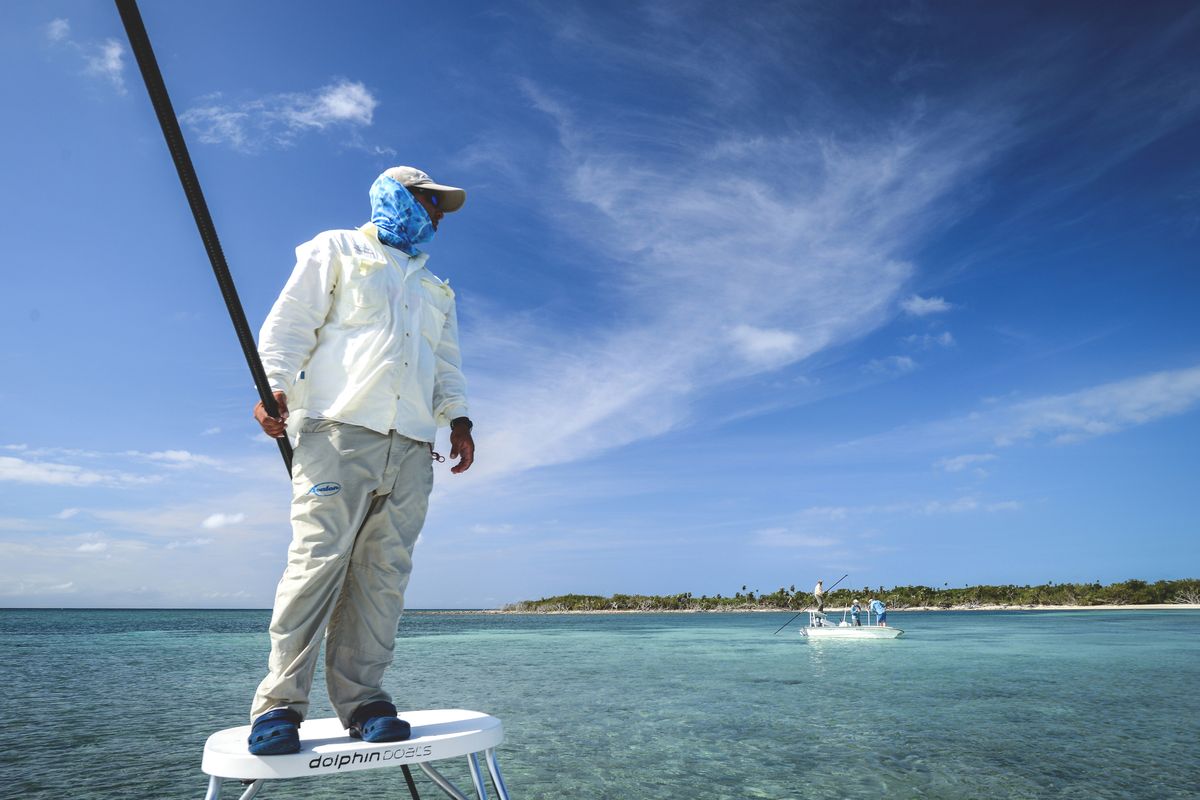Far-flung fly fishers hooked on Cuba

A group of Spokane fly fishers already had a trip planned and tickets purchased before President Barack Obama announced on Dec. 17 that he was working to relieve U.S.-Cuba restrictions on travel and commerce.
They headed out in January for a round-about journey to an island nation that U.S. citizens have had to dream about or jump through hoops to visit.
“Cuba has always been high on my bucket list of saltwater destinations,” said Sean Visintainer of Silver Bow Fly Shop in Spokane Valley.
When the opportunity arose to put together a trip for tarpon, bonefish, permit and snook, he jumped at the chance. He assembled several local anglers and regional fishing reps game for exploration and hooked up with Avalon, an Italy-based company that has specialized in Cuba fishing and diving trips for 20 years.
Since relations between the U.S. and Cuba deteriorated in 1960, travel to the Communist country has been difficult or impossible for American citizens.
Starting in 2011, the doors opened slightly through people-to-people educational trips or research opportunities.
Visintainer’s group had obtained an educational license and a Cuban marine biologist gave them insight to the marine reserve and the culture, economics and history of Havana. “U.S. Customs was aware of our trip and approved it upon re-entry,” said Michael Visintainer, Sean’s brother and shop partner. “You have been able to travel to Cuba legally under the The Cuban Assets Control Regulations, through the United States Department of Treasury and the Bonefish & Tarpon Trust.”
“Until relations are improved and charter flights out of Miami become more reliable, it’s still hard to get there,” Sean Visintainer said.
Despite being just 90 miles from Florida, American visitors must fly via places such as Canada or Grand Cayman Islands in order to be allowed into Cuba. This group traveled for three days each way through Mexico City – six days of travel for five days of fishing.
“It was a bit of a pain, but worth it,” said Felix Martinez, a Spokane fly fisher who joined the group with his wife, Jan.
Going through Customs in Havana was slow and frustrating topped off by Visintainer being taken to a back room where he was questioned for two hours. His mistake: bringing a SPOT emergency locator GPS unit. Officials confiscated the device before letting him proceed.
“I never got it back,” he said.
The group enjoyed a day to absorb the culture in Havana.
“It’s beautiful but very humbling,” Visintainer said. “You can see the effects of 55 years of embargo. The city is kind of crumbling; cars all need repairs.”
Cuba only recently allowed people to start private restaurants in their homes, Martinez said. “We got a tip on a 24-year-old chef who’d assembled a great staff and put out a very nice meal,” he said. “And there was music everywhere in lobbies and restaurants. The Cubans are really into their music and looking for ways to make a living.”
The next day they endured a bumpy seven-hour bus ride Martinez called “surreal.”
“I found myself just staring out at the cinderblock houses and very rural economy.
“It’s totally different than rural Mexico, where you see some real poverty and trash everywhere. In Cuba, even the most humble of homes had a landing or porch. And everyone’s tile porch was swept and mopped. It’s their version of the American green lawn. Cubans have great pride in having a home.”
The five days of fishing began at the end of the road and a comfortable mother boat at Jardines de la Reina – Gardens of the Queen.
“Jardines is an archipelago about 50 miles off the Cuba mainland and is home to all the major players of saltwater gamefish – bonefish, permit, tarpon, snook, jacks, barracuda and more,” Visintainer said.
“It was the offseason and the fishing wasn’t easy,” Martinez said. “It was all sight fishing. The guides wanted you to put the fly right there, quickly.
“The permit were not in groups as they would be in peak season. They were mostly solo and very spooky. Neither Jan nor I was good enough to get a fly to a permit, but we each hooked up with a tarpon.”
Landing his first tarpon on a 10-weight rod was worth the entire trip, Martinez said.
“It was a crash course in learning to keep the rod tip down and managing line screaming off the reel.
“When I hooked up, the fish immediately came out of the water, shimmering like a Motown dancer,” he said.
“It kept jumping the whole way and took off the first time I got him to the boat. That was really cool.”
Everyone got into fish and two anglers on the trip landed grand-slams – a tarpon, permit and bonefish in one day.
“One of the reps grand slammed twice in five days. For January, to get out of the Spokane’s cold weather and fish for a week in 80 degrees and experience old and new Havana, it was pretty neat,” Visintainer said.
“I’ve been to Belize and the Bahamas, and I felt Havana overall is a great city, very safe with lots of police presence.”
Cuba has a healthy marine ecosystem that matches other prized saltwater destinations, said Visintainer, who’s planning to organize return trips.
“The fishing along with visiting a culture off-limits to Americans for decades makes the package especially appealing,” he said. “The fishing was good and it probably can be excellent at times in peak season.
“Hopefully this will be the first of many trips.”
“The Cubans are more than ready for American tourists and fishermen,” Martinez said, with high compliments to the guides and staff that served his group. “It can’t happen soon enough for them.”